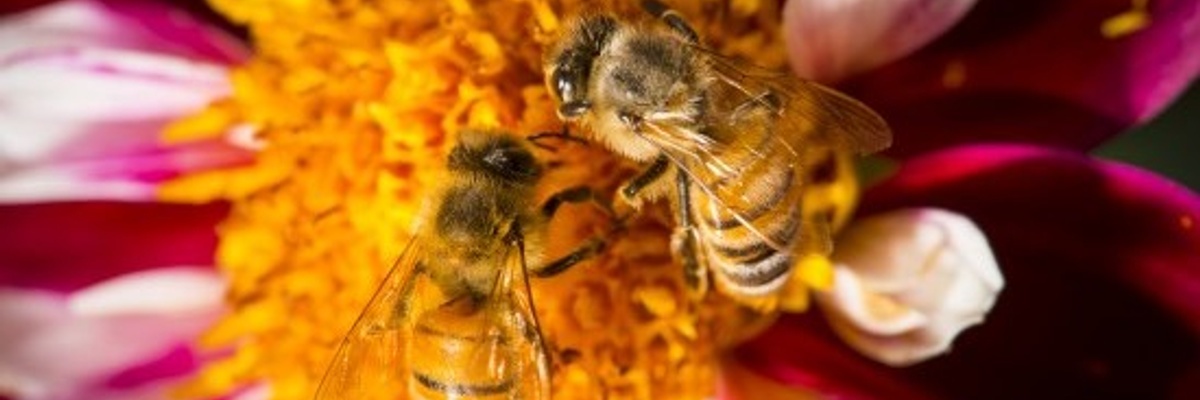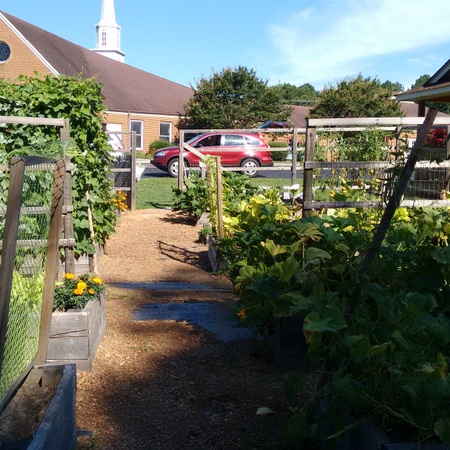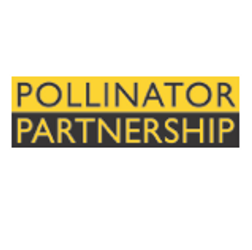

Invite pollinators to your neighborhood by planting a pollinator friendly habitat in your garden, farm, school, park or just about anywhere!
The Idea
Pollinator Partnership helps people protect pollinators to ensure healthy ecosystems and food security. The Pollinator Partnership’s mission is to promote the health of pollinators, critical to food and ecosystems, through conservation, education, and research. Their signature initiatives include the NAPPC (North American Pollinator Protection Campaign), National Pollinator Week, and the Ecoregional Planting Guides, which this page will help you to get started with in your community.
The ecoregional planting guides, Selecting Plants for Pollinators, are tailored to specific areas of the United States and Canada. You can find out which ecoregion you live in simply by entering your zip code / postal code at http://pollinator.org/guides and get your free guide tailored to the pollinators in your region. You can find lists of plant names that will attract pollinators and help you build a beautiful pollinator habitat! Print these lists and bring them to your local native plant, garden center or nursery and then get a group together and get planting!
Invite pollinators to your neighborhood by planting a pollinator friendly habitat in your garden, farm, school, park or just about anywhere!
The Idea
Pollinator Partnership helps people protect pollinators to ensure healthy ecosystems and food security. The Pollinator Partnership’s mission is to promote the health of pollinators, critical to food and ecosystems, through conservation, education, and research. Their signature initiatives include the NAPPC (North American Pollinator Protection Campaign), National Pollinator Week, and the Ecoregional Planting Guides, which this page will help you to get started with in your community.
The ecoregional planting guides, Selecting Plants for Pollinators, are tailored to specific areas of the United States and Canada. You can find out which ecoregion you live in simply by entering your zip code / postal code at http://pollinator.org/guides and get your free guide tailored to the pollinators in your region. You can find lists of plant names that will attract pollinators and help you build a beautiful pollinator habitat! Print these lists and bring them to your local native plant, garden center or nursery and then get a group together and get planting!
After Action Impact Report
Project Overview: The Garden Day event held at South Hill Presbyterian Church on April 20, 2024 aimed to engage the community in gardening activities, emphasizing the importance of native plants. The event was a resounding success, attracting a diverse group of residents from South Hill, VA. The initiative showcased the benefits of native gardening, including water conservation, soil erosion prevention, and habitat creation for local wildlife.
Event Highlights:
Community Engagement: The event reached a broad spectrum of residents, fostering a sense of community and shared purpose.
Educational Outreach: Informative displays and activities educated participants on the benefits of native plants and sustainable gardening practices.
Hands-On Experience: Attendees participated in a plant share, exchanging various native plants and gaining practical knowledge about gardening.
Project Impact: The event had a significant positive impact on the community:
Increased Awareness: Many residents gained a deeper understanding of the ecological benefits of native plants.
Enhanced Community Cohesion: The event brought together individuals from diverse backgrounds, promoting social interaction and cooperation.
Environmental Benefits: By encouraging the use of native plants, the event contributed to local biodiversity and the health of the ecosystem.
Food Security: The community garden initiative improved local food security by providing fresh produce to residents.
Garden Working Group: The success of the event was made possible by the dedicated efforts of the garden working group, who not only staffed the event but also played a crucial role in recruiting volunteers. This team of volunteers assisted with hardscaping, mulching, and planting activities, significantly contributing to the development and maintenance of the church community garden.
We wish to express our gratitude to Change-x and Microsoft for hosting this partnership. Everyone who attended our event left with an increased knowledge and the plants to take home! You have enabled us not only to plant a pollinator friendly habitat in our gardens, but you have planted the seeds of change for future families in our area. Thank you!









Action plan: We are currently in our planning stages for our South Hill Presbyterian Church 2024 Community Garden event. Our focus this year is planning your garden with native plants and we are currently selecting plants and designing the community engagement plan. We will launch our program with the public in May and it will include a plant share, special displays and activities on gardening with native plants. As part of the program we will also be adding native, pollinator and fruiting plants in our landscape here at the church to use as a training environment. There are many benefits of landscaping and gardening with native plants including conserving water, protecting soil from erosion, and creating habitat and providing food for many different animals including birds, pollinators, and small mammals.
Timeline: Planning is in progress January – March we will be developing the plant list and identifying vendors with a community engagement date to be set in May. In May through August our team will be working on the grounds and in the community garden to plant, nurture and harvest the garden. The native plants will support the pollinator population to improve the harvest and outcomes of our community and our church community garden. To ensure the success and expansion of our garden, we have assembled an all-volunteer team comprising members of the church congregation and staff. Additionally, we are collaborating with local Boy Scouts who will assist with mulching and hardscaping projects.
The outlined project plan involves:
Budget: Initial budget is approximately $1200 for plants and an additional $600 for hardscaping elements like fencing, signage, pathways, and mulch.
Impact: The recent industrial growth in our state and community has led to a decline in the pollinator population, posing a threat to our food supply, heavily reliant on insects, birds, and small mammals. Bees, butterflies, moths, wasps, and other pollinating insects play a crucial role in our crop production. To address this issue, we plan to educate the community on the strategic grouping of native plants to attract pollinators, repel pests, and enhance overall plant productivity.
Location: The community garden is located on the grounds of South Hill Presbyterian Church 914 N Mecklenburg Ave, South Hill, VA 23970 and the plant share workshop will be open to the public.


We have recruited the team and met on planning calls and in person after Sunday Services. I've shared a photo of our team. Below is a picture of our community garden in full swing. Our last step is waiting for our other members to click the link to join the Change-X virtual platform.

